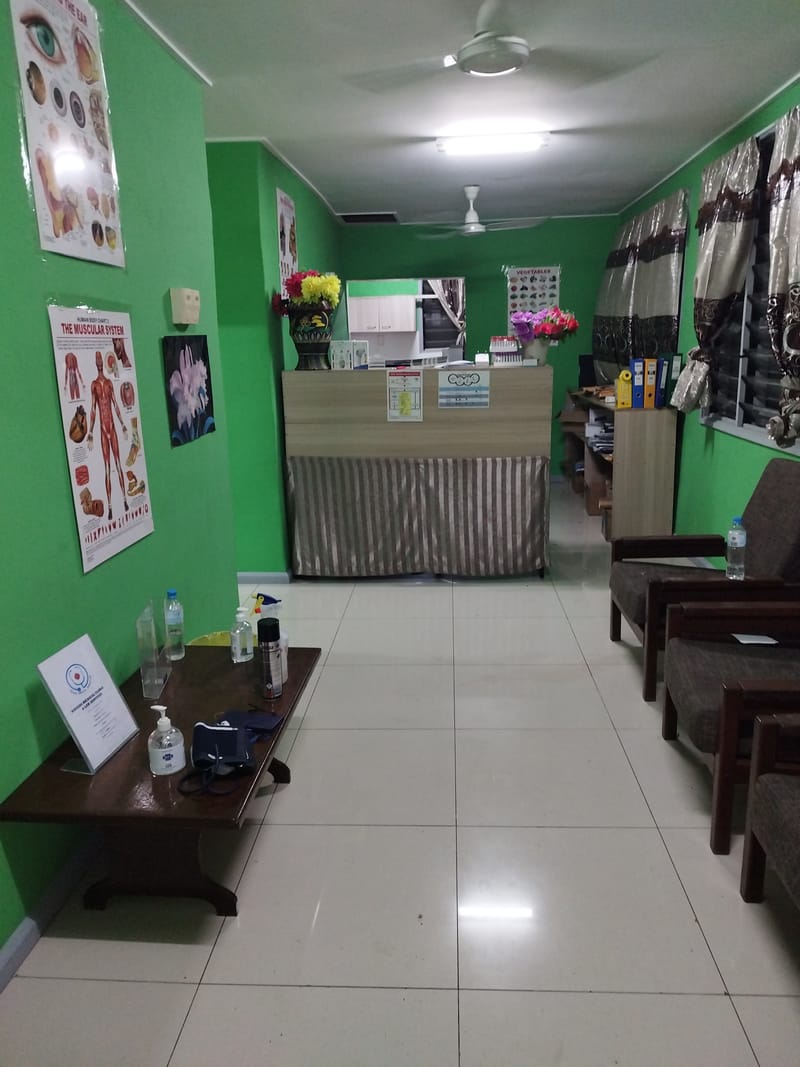Niugini Medical Clinic Patient Management Policy

Niugini Medical Private GP Clinic and Lab services Policy
1. Patient Information Collection:
Clinical History - Conduct thorough interviews to gather comprehensive medical histories, including current symptoms, past illnesses, medications, allergies, and family medical history.
- Document patient-reported information accurately and legibly in the electronic health record (EHR) system.
- Physical Examination:
- Perform systematic and detailed physical examinations, documenting findings in the patient's record.
- Utilize standardized assessment forms for consistency in recording examination results.
- Laboratory Tests:
- Order laboratory tests based on clinical indications and guidelines.
- Clearly document the rationale for each test and interpret results in the context of the patient's overall health.
- Imaging and Scans - Request imaging studies (e.g., X-rays, CT scans, lung scans) when necessary for diagnosis or monitoring.
- Ensure appropriate documentation of the reason for the imaging study and relevant findings.
2. Patient Record-Keeping:
- Electronic Health Record (EHR):
- Utilize a secure and compliant EHR system for efficient and accurate record-keeping.
- Ensure proper training for staff on EHR usage to minimize errors.
- Confidentiality:
- Implement strict access controls to patient records, allowing only authorized personnel to view sensitive information.
- Educate staff on the importance of patient confidentiality and the legal implications of unauthorized disclosure.
- Record Retrieval:
- Establish a systematic method for retrieving patient records promptly.
- Use unique patient identifiers to ensure accuracy in record retrieval.
3. Confidentiality and Security:
- Data Encryption:
- Encrypt electronic patient records to protect against unauthorized access or data breaches.
- Regularly update encryption protocols to meet industry standards.
- Access Controls:
- Implement role-based access controls to restrict information access based on job responsibilities.
- Conduct regular audits to ensure compliance with access control policies.
- Physical Security:
- Secure physical records in locked cabinets or rooms with limited access.
- Monitor and control entry to areas where patient records are stored.
4. Informed Consent:
- Explanation of Records:
- Clearly explain to patients the purpose of collecting and maintaining their medical records.
- Obtain informed consent for sharing medical information with other healthcare providers when necessary.
- Patient Rights:
- Educate patients about their rights regarding access to their own medical records.
- Establish procedures for providing patients with copies of their records upon request.
5. Record Retention and Disposal:
- Retention Period:
- Establish and adhere to a record retention policy based on legal requirements.
- Clearly define the duration for which patient records will be retained after the last patient encounter.
- Secure Disposal:
- Implement secure and environmentally friendly methods for the disposal of physical records.
- Ensure complete and irreversible destruction of electronic records when no longer needed.
6. Training and Compliance:
- Staff Training:
- Provide comprehensive training to all staff members on patient information handling, confidentiality, and record-keeping procedures.
- Conduct regular refresher courses to keep staff updated on any changes in protocols.
-Regulatory Compliance:
- Stay informed about and adhere to all relevant data protection and patient privacy regulations.
- Periodically review and update protocols to remain in compliance with changing laws and standards.
This Patient Management Protocol is designed to ensure the accurate collection, secure storage, and confidential handling of patient information at Niugini Medical Services. All staff members are expected to follow these guidelines diligently to safeguard patient privacy and maintain the highest standards of healthcare information management.


